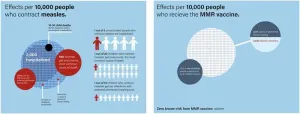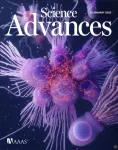(Press-News.org) A new study has shown that sleep deprivation can inhibit the brain’s ability to suppress unwanted memories and intrusive thoughts.
Scientists at the University of York, in collaboration with the University of East Anglia, have shown that sleep deprivation interferes with the ability of the prefrontal area of the brain to restrict the retrieval of memories that would have otherwise been suppressed.
Dr Scott Cairney from the University of York said: “Memories of unpleasant experiences often intrude into our conscious mind in response to reminders, but tend to be fleeting and can be put out of the mind again, but we have previously shown that the brain's ability to suppress such intrusive memories is contingent on obtaining restful sleep.
“Suppression is a very clever function of the brain as it weakens all of the connecting traces of the memory, thereby inhibiting us from joining up all the dots to retrieve the full picture of the experience when it is triggered by an external stimulus.”
To understand how the brain does this, the team used functional magnetic resonance imaging (fMRI) scans to investigate the brain activity of 85 healthy adults, half of which had experienced a healthy night sleep in the sleep lab, and the other half stayed awake all night.
They were asked to look at faces, which they had previously seen paired with images of scenes, some of which were emotionally negative, such as a picture of a car crash or a fight. For each face they were asked to either recall the scene associated with it, or suppress the memory of the scene.
When attempting to suppress the scene images, the well-rested participants showed more activation in the right dorsolateral prefrontal cortex - a brain region that controls thoughts, actions, and emotions - compared to those who stayed awake all night.
The rested participants also showed reduced activity in the hippocampus - a brain region involved in memory retrieval - during attempts to suppress unwanted memories, demonstrating that they could ‘shut down’ the retrieval operations that underpin emerging intrusive thoughts.
They also found that individuals who obtained more rapid eye movement (REM) sleep, were better able to engage the right dorsolateral prefrontal cortex during memory suppression, pointing to a role for REM sleep in restoring the mechanisms in the brain that can help prevent unwanted memories from entering conscious thought.
Dr Cairney explains: “The participants who were sleep deprived were unable to engage the area of the brain that helps us suppress unwanted memories. Consequently, they could not quash memory related processes in the hippocampus that give rise to intrusive thoughts.
“This is really important to our understanding of mental health issues as it is well documented that those who suffer with anxiety, depression or PTSD, also have difficulty with sleep. Now that we have better understanding of the the mechanisms in the brain that can help restrict negative memories and thoughts, we can perhaps work on more targeted treatments and behavioural therapies that help with improving sleep and as a result support the brain in doing what it has so cleverly adapted to doing, allowing us to lead mentally fit lives.”
‘Memory control deficits in the sleep-deprived human brain’ is published in the journal Proceedings of the National Academy of Sciences.
END
Scientists show how sleep deprived brain permits intrusive thoughts
2025-01-08
ELSE PRESS RELEASES FROM THIS DATE:
UC Irvine-led team discovers potential new therapeutic targets for Huntington’s disease
2025-01-08
Irvine, Calif., Jan. 8, 2025 — A University of California, Irvine-led research team has discovered intricate molecular mechanisms driving the RNA processing defects that lead to Huntington’s disease and link HD with other neurodegenerative disorders such as amyotrophic lateral sclerosis, frontotemporal lobar dementia and Alzheimer’s disease.
The findings may pave the way for neurodegenerative disorder researchers to collaborate and share therapeutic strategies across diseases, opening additional avenues for treatment.
While it’s known that HD is caused by an abnormal ...
Paul “Bear” Bryant Awards 2024 Coach of the Year finalists named
2025-01-08
HOUSTON, January 8, 2025 — Eight active college football coaches make up the American Heart Association’s 2024 Paul “Bear” Bryant Coach of the Year Award finalist list. The award is given each January to a college football coach for contributions that make the sport better for athletes and fans alike by demonstrating grit, integrity and a winning approach to coaching and life – both on and off the field. The Paul “Bear” Bryant Coach of the Year Award is the only college football coaching honor ...
Countering the next phase of antivaccine activism
2025-01-08
In a recent essay, pediatrician-scientist Peter Hotez proposes a focus on local data, improved benefit-risk communications, actively countering health disinformation, and state-level action to address antivaccine sentiment in the U.S.
Anti-vaccine sentiment isn’t going away any time soon. In a new opinion article published January 8 in the open-access journal PLOS Global Public Health, Prof. Peter Hotez from Baylor College of Medicine, outlines key actions to stem the momentum of anti-vaccine advocates in the U.S. over the next five years.
Anti-vaccine activities in the U.S. transformed to become a politically charged movement ...
Overcoming spasticity to help paraplegics walk again
2025-01-08
Electrical stimulation of the spinal cord is a promising strategy for reestablishing walking after spinal cord injury, recent studies show. But for patients suffering from muscle spasms, the stimulation protocols have a limited effect due to the unpredictable behaviour of involuntary muscle stiffness related to spasticity. Muscle spasticity affects almost 70% of spinal cord injured patients
Now, scientists at EPFL, Università San Raffaele and Scuola Sant’Anna have found a promising way to address and reduce muscle spasticity in patients with incomplete spinal cord injury. ...
Tiny microbe colonies communicate to coordinate their behavior
2025-01-08
A new study published in Science Advances reveals evidence of electrical signaling and coordinated behavior in choanoflagellates, the closest living relatives of animals. This elaborate example of cell communication offers key insights into the early evolution of animal multicellularity and nervous systems.
Researchers from the Burkhardt group at the Michael Sars Centre, University of Bergen, uncovered a remarkable diversity of behaviors within the rosette-shaped colonies of the choanoflagellate Salpingoeca rosetta - and the small organisms held even more surprises. “We found communication among the cells of the colonies, which regulates shape and ciliary beating across the rosette,” ...
Researchers develop new technology for sustainable rare earth mining
2025-01-08
Ion-adsorption rare earth deposits (IADs) are primary sources of heavy rare earth elements (HREE), supplying over 90% of the global demand for HREE. However, the current ammonium-salt-based in-situ mining technique has led to severe environmental impacts.
To facilitate sustainable REE mining, Professors ZHU Jianxi and HE Hongping’s team from the Guangzhou Institute of Geochemistry of the Chinese Academy of Sciences (CAS) has developed a green and efficient electrokinetic mining (EKM) technology.
Their work was published in Nature Sustainability on Jan. 6, 2025.
To address the challenges of sustainable and efficient REE extraction, ...
Words activate hidden brain processes shaping emotions, decisions, and behavior
2025-01-08
In an unprecedented new study in the journal Cell Reports, researchers have shown neurotransmitters in the human brain are released during the processing of the emotional content of language, providing new insights into how people interpret the significance of words.
The work, conducted by an international team led by Virginia Tech scientists, offers deeper understanding into how language influences human choices and mental health.
Spearheaded by computational neuroscientist Read Montague, a professor of the Fralin Biomedical Research Institute at VTC and ...
Understanding survival disparities in cancer care: A population-based study on mobility patterns
2025-01-08
A recent study published in Health Data Science, led by Dr. Fengyu Wen from the Institute of Medical Technology at Peking University Health Science Center and Professor Luxia Zhang from the National Institute of Health Data Science at Peking University, reveals significant survival disparities among cancer patients depending on their mobility patterns for medical care.
The study analyzed data from over 20,000 cancer patients in Shandong Province, China, to assess the impact of intra-city, local center, and national center mobility patterns on survival rates. Patients who traveled to local or national healthcare centers had higher five-year survival ...
Common sleep aid may leave behind a dirty brain
2025-01-08
Getting a good night’s sleep is a critical part of our daily biological cycle and is associated with improved brain function, a stronger immune system, and a healthier heart. Conversely, sleep disorders like insomnia and sleep apnea can significantly impact health and quality of life. Poor sleep often precedes the onset of neurodegenerative diseases and is a predictor of early dementia.
New research appearing in the journal Cell describes for the first time the tightly synchronized oscillations in the neurotransmitter norepinephrine, ...
Plant cells gain immune capabilities when it’s time to fight disease
2025-01-08
LA JOLLA (January 8, 2025)—Human bodies defend themselves using a diverse population of immune cells that circulate from one organ to another, responding to everything from cuts to colds to cancer. But plants don’t have this luxury. Because plant cells are immobile, each individual cell is forced to manage its own immunity in addition to its many other responsibilities, like turning sunlight into energy or using that energy to grow. How these multitasking cells accomplish it all—detecting threats, communicating those threats, and ...




